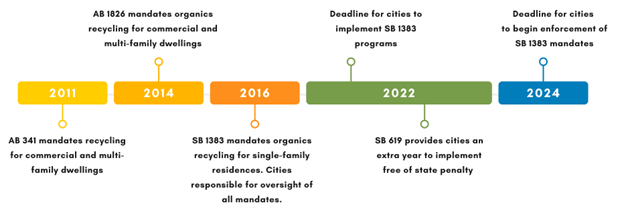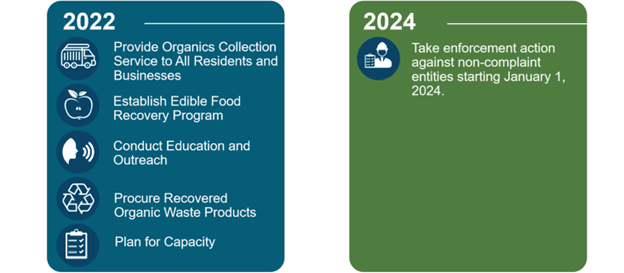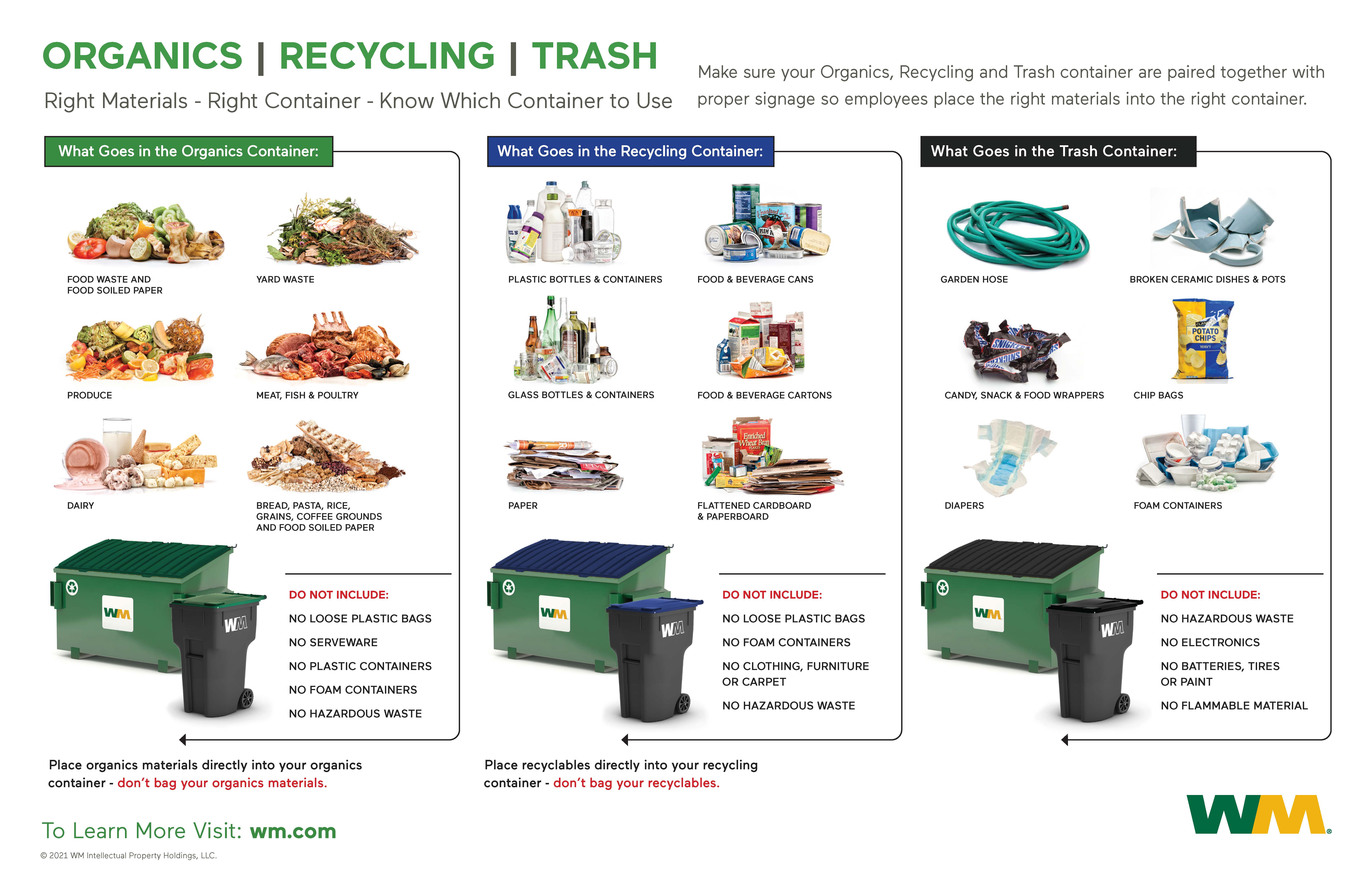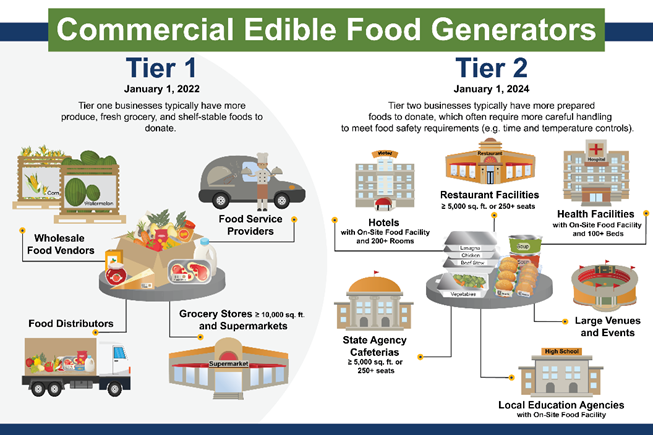Organics Recycling
SB 1383 California State Organics Recycling Law
In September 2016, Governor Brown signed SB 1383, establishing methane emissions reduction targets in a statewide effort to reduce emissions of short-lived climate pollutants (SLCP) in various sectors of California's economy. Actions to reduce short-lived climate pollutants are essential to address the many impacts of climate change on human health, especially in California's most at-risk communities, and on the environment. SB 1383 establishes targets to achieve a 75% reduction by 2025 in the level of the statewide disposal of organic waste.
SB 1383 Timeline

SB 1383 Key Dates

SB 1383 Requirements
Beginning January 1, 2022, all businesses, multi-family complexes, and single-family home residents are required to subscribe to an organics collection service and must separate into their green organics’ container ALL green waste, food scraps, and food-soiled paper (100% fiber based).

Commercial Edible Food Generators
In addition, Edible Food Generators (considered Tier 1 and Tier 2) must recover the maximum amount of edible food that would otherwise be disposed of, arrange for food donation and collection through contracts or written agreements with food recovery organizations or services, and maintain food donation records.

